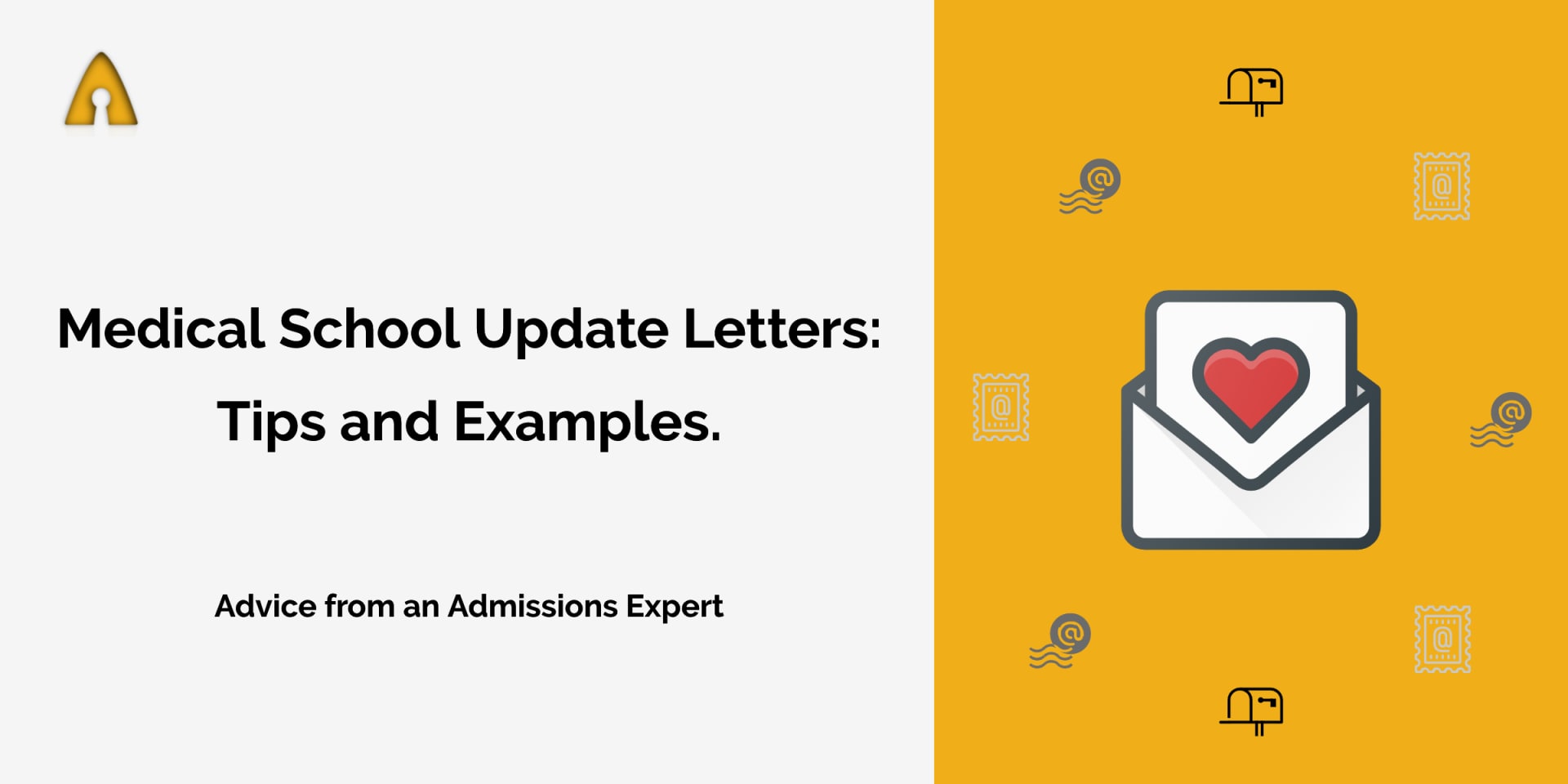Welcome to the third article in this series on becoming a competitive medical school applicant. In the first article, I provided a look inside the general medical school admissions process. I explained why it can take so long to learn whether you have been rejected or invited to interview. I concluded with recommendations for what you can do in the months following submission of your application.
In the second article, we explored the secondary application. We looked at some of the most common topics applicants can expect to write about and I provided some of my top tips to compose an essay that not only stands out, but improves the likelihood of getting accepted to medical school.
If you haven’t yet read those first two articles, you can access them from the Articles page, accessible from the menu, or you can click the links below.
Link to the first article: Applied to Medical Schools but Haven’t Heard Back? What it Means and What You Can Do.
Link to the second article: Medical School Secondary Applications. Are You Prepared?
In this article, we take a closer look at the medical school update letter.
Much like the secondary application, medical school update letters can be the difference between receiving an invitation to interview or a rejection.
Keep reading to find out when you should send an update letter and what you should include.
Medical School Update Letters: Tips and Examples.
As I mentioned in the previous two articles, each medical school is free to create its own selection process. Some schools require certain minimum GPAs and MCATs. Other medical schools place more emphasis on research, clinical experience or community service.
Similarly, not every medical school is going to accept update letters.
However, since you are going to apply to multiple medical schools (according to the Association of American Medical Colleges, applicants apply to an average of 16 medical schools), the odds are good that there will be schools among your list that will accept update letters.
Medical school update letters, what are they? Should you write any?
The purpose is right there in the name, they are letters that provide some sort of update, hopefully, one that is meaningful.
Stated differently, medical school update letters let your schools know you are still actively involved in the kind of activities that make you competitive.
Want to know more about how to submit the best possible application? Make sure you are signed up to receive emails so you never miss out. Find the sign-up button near the bottom of this page.
Top reasons to send an update letter.
Applicants often want to send update letters to let medical schools know that they are still interested in attending. Sharing your continued interest in a particular medical school can be a great action to take; however, if it does not come with some substantive information, it likely will have little effect on your application.
Let’s take a step back and think about the people who read medical school applications.
Application readers are tasked with reading hundreds, sometimes thousands of applications per cycle. There were some years that I evaluated more than 3,000 files (files consist of the AMCAS primary application including essays, 15 experience narratives, letters of recommendation, secondary essays, and any update letters).
Anything you can do to make your application reader’s job easier is to your advantage. Conversely, anything you include that adds length/time without much substance is likely not helping your chances of getting into medical school.
With that said, here are my top two reasons for sending an update letter:
- to provide an update on an experience mentioned in the AMCAS primary or secondary applications; and/or,
- to inform of a new experience or accomplishment not mentioned previously in your application.
Provide an update on a previously mentioned experience.
If you wrote in your primary application that you recently began a meaningful experience, update your readers.
I cannot begin to guess how many AMCAS primary applications I have reviewed that included an important but only recently started experience, only to be disappointed not to see an update letter. This is especially important if not much time has passed between the primary and secondary applications, or if the secondary application does not include a space to write about what you are doing during the rest of the year.
Without an update letter, how is someone reading your application to know whether you are still engaged in that experience?
Here are two common reasons for providing an update on a previously mentioned experience:
- a significant amount of hours reported in the primary application were future hours; and/or,
- you recently accomplished something related to a previously reported experience.
Do not leave your application readers wondering if you are still engaged in a particular experience. Instead, send an update.
Inform your admissions committees of new experiences or accomplishments.
Perhaps you started an experience after submitting your primary application. Even if you mentioned it in your secondary application, there is a good chance that you will have plenty of details to share with your medical schools in an update letter.
Whether you recently increased your hours and/or responsibilities in an existing role, or found a new opportunity to learn, grow, and get involved, update letters (as long as you follow the advice in this article) can be a valuable addition to your application.
If you take one point away from this article, make it this:
Update letters should be meaningful. While update letters are your chance to proclaim your ongoing desire to attend a particular medical school, first and foremost, only send an update letter if it will enhance your application.
Whether your update is on an experience you wrote about in your primary application, or something more recent, make sure you are providing rich and relevant information that says, “I am continuing to prepare myself for medical school and beyond.”
Example Update Letters.

Because I already touched on update letters in the first article in this series, I wanted to make sure I added significant value to this one.
In the remainder of this article, you will find two update letter examples. These examples are based on details from actual applications from my time at different medical schools.
The first example is of an applicant who did not send an update letter and was not invited to interview, in part because of the absence of an update letter.
Caution: an example of what not to do.
In this example, an applicant who we will call Mike had been out of college for several years. According to his personal statement, Mike had previously applied to medical school (although this was his first time applying where I was working).
After being unsuccessful the first time, Mike enrolled in (and completed) a one year masters program.
I will talk about special masters programs in an upcoming article. I have a lot to say about special masters programs so make sure you are signed up so you don’t miss out.
Back to Mike.
Mike had applied to medical school, been unsuccessful, enrolled in a special masters program and again, applied unsuccessfully and was now applying a third time.
In my notes, I wrote that the experiences reported were light (not many hours), especially given the amount of time since completing undergrad. Mike reported in his secondary application that he was working on finding employment for the remainder of the admissions cycle. Unfortunately, Mike never provided an update.
Mike was rejected.
Why was Mike rejected? Was it because of his grades or MCAT?
Mike had an MCAT above the 90th percentile and his GPA was in the average range for the medical school.
The issue for Mike was that he had lighter hours in the experience section of his primary application, especially compared to other applicants. And, while Mike earned strong grades in his special master’s program, grades were not his issue in the first place.
Since Mike was a full-time student in a special master’s program, he was limited in the number of hours and depth of responsibility he was able to acquire in experiences beyond the classroom.
The years were going by, but Mike was not significantly increasing his involvement in meaningful experiences.
There is a lot we can learn from Mike. We can learn about experiences, special master’s programs, and how to approach gap years. Perhaps we will come back to Mike in future articles.
For now, we will focus on the importance of the update letter.
Did Mike ever secure an in-depth experience, or set of experiences?
I had no way of knowing. Mike never sent an update letter.
Had Mike sent an update letter, would he have been invited to interview?
That is entirely possible. It would have depended on the content of that update letter.
So what makes for a good update letter?
An example of what you should do.
Here is an example update letter.
We will call this applicant Andrea.
Andrea’s update letter took the form of an email addressed to the admissions committee and was sent to the admissions office as per the instructions on the medical school’s website.
In the event that you send an update letter, make sure you follow each medical school’s instructions.
Andrea’s update letter.
To the admissions committee and staff in the admissions office at Apply with Success School of Medicine:
I am Andrea Surname and I am an applicant to the Apply with Success School of Medicine 2022 entering class. I am writing to update you on my progress and to express my continued interest in attending your medical school.
On December 1st, I began working full-time as a clinical research assistant at the Fantastic Hospital. I am a member of a research team studying length of stay for hospitalized patients who have diabetic foot ulcers requiring amputation. I support the study through patient recruitment, explaining study goals and procedures, obtaining consent, medical record review, and accompanying attending physicians and residents in both the OR and wound center. This position allows me to interact with patients and improve my understanding of research and public health. I will complete 960 hours in this role.
Additionally, I am still volunteering at the Open Arms Community Health Clinic. I became a member of this student-run organization during my sophomore year of college and will continue to volunteer every Sunday for the remainder of my gap year.
I hope the experiences I am gaining demonstrate my sincere interests in medicine and service to others.
Thank you for your consideration.
Sincerely,
Andrea Surname
AAMC ID: 99999999
What makes Andrea’s update letter effective?

Andrea recognized that there may be a variety of people involved in her application review. She acknowledged both the admissions committee and the admissions office. Oftentimes the review of applications is carried out by staff in an admissions office, as discussed in more detail in the first article in this series. This is a minor point and not something I have ever dwelled on when reviewing applications. But, it doesn’t hurt to be inclusive in your greeting.
Next, Andrea introduced herself and provided a purpose for the communication. While Andrea used the update letter as an opportunity to express her ongoing interest in attending the medical school, she made it clear that there is substance to the email.
The next three brief paragraphs are the meat of the update letter. Here, Andrea explains what she is doing in the period of time between submitting her application and the first day of medical school.
Andrea mentioned a start date for her experience and a total amount of hours. This is a detail that I wish more applicants included. I am sure you will agree that there is a big difference between an experience that is 20 hours and one that is 500. The amount of hours you spend engaged in an activity speaks to the depth of your involvement and interest. Do not leave readers guessing on the details.
Next, Andrea provided a brief overview of her responsibilities. We are not able to learn everything, but we know Andrea has a lot of patient and physician interaction. We learned that, in addition to one-on-one interaction with patients through consent and study explanation, Andrea had opportunities to observe in the wound clinic and OR as she assisted with the research project.
Andrea also provided us with an update from her primary application related to her volunteer work at a student-run clinic. While Andrea did not quantify her volunteer hours, we have a good idea of what “every Sunday for the remainder of my gap year” means.
Andrea wrapped up her update letter by summarizing the importance of her update. She thanked the committee and admissions office for her consideration, offered a standard and respectful end to her letter (“Sincerely”) and restated her full name. Andrea included her AAMC ID as the final piece of information; this can help the admissions staff add the update letter to the rest of her application materials.
Concluding Thoughts.
In creating Andrea Surname, I made up experiences that took place in a medical setting; however, that should not be taken to mean that non-clinical experiences are unworthy of updates.
There are many other experiences and/or accomplishments worthy of an update letter.
I hope you are able to find some meaningful takeaways and apply these lessons to your own journey to medical school.
Remember, as I mentioned in the first article, update letters can display valuable information:
- an experience lasted as long as claimed;
- the importance of a particular experience on your development;
- your ongoing interest (both in medicine, in general, and in a particular medical school); and/or,
- any new developments (additional hours and/or responsibilities, accolades/accomplishments).
To sum up this article, the people reading and evaluating your applications want to see meaningful updates that let them know you are continuing to build skills and knowledge relevant to medicine, despite having already submitted your AMCAS primary application.
If you follow this one piece of information, you will increase your chances of writing medical school update letters that improve your chances of getting into medical school.
I hope you found this article helpful and I wish you the best in all your aspirations.
Sincerely,
Adam Lowrance, PhD
Let me know in the comment section if you found this article helpful. Where are you in the process? Are you applying to medical schools this cycle, or thinking about doing so in the future?


5 Responses
Thanks for the information. I feel uncomfortable writing a special letter to the medical schools about an accomplishment of mine but after reading this, I think I should.
Hi Eliza,
Thank you for your reply. If you have new accomplishments you can share with your medical schools and they allow update letters, you should absolutely consider sending them an update. Follow the suggestions in this article and you will do great. Best of luck to you!
-Dr. Adam
Hi Dr. Adam,
Would you recommend sending an update letter before interview invitations roll out at a given school? I have a new peer-reviewed publication, which I’m hoping will strengthen my candidacy at research-focused schools, and I’d like to let them know as soon as possible. But several other online resources say that I should wait until November at least, or even that I should wait until after I’ve been interviewed and waitlisted. What do you think?
Thanks for sharing your expertise!
– Jeremy
Hi Jeremy,
Congratulations on your publication!
Yes, I do recommend sending update letters prior to interviewing. With that stated, make sure to review each school’s rules regarding update letters.
While I can appreciate the varying recommendations and perspectives from different resources, in my experience, having reviewed and made decisions on so many applications and at multiple schools, I find that update letters after secondaries but before interviews can have a meaningful impact on admissions competitiveness.
If an update letter can improve an applicant’s competitiveness, then it stands to reason that we want to get that added to our file as early in the admissions process as possible (after secondaries but before interviews). If there is more context, more experience, and/or new accolades you can share with a school to help them evaluate your suitability for their incoming class, it is to your benefit to get those details in front of your application reviewers before they are deciding whether to offer you an interview.
In terms of a November recommendation, November works out to be right in that sweet spot for many applicants where enough time has elapsed since secondaries to allow for meaningful improvements to experiences/accolades/etc., but I do not recommend applicants wait if they believe they have meaningful updates to share prior to that time.
Let me know if you have any other questions. Feel free to email me if you need anything else.
Best of luck!
Dr. Adam